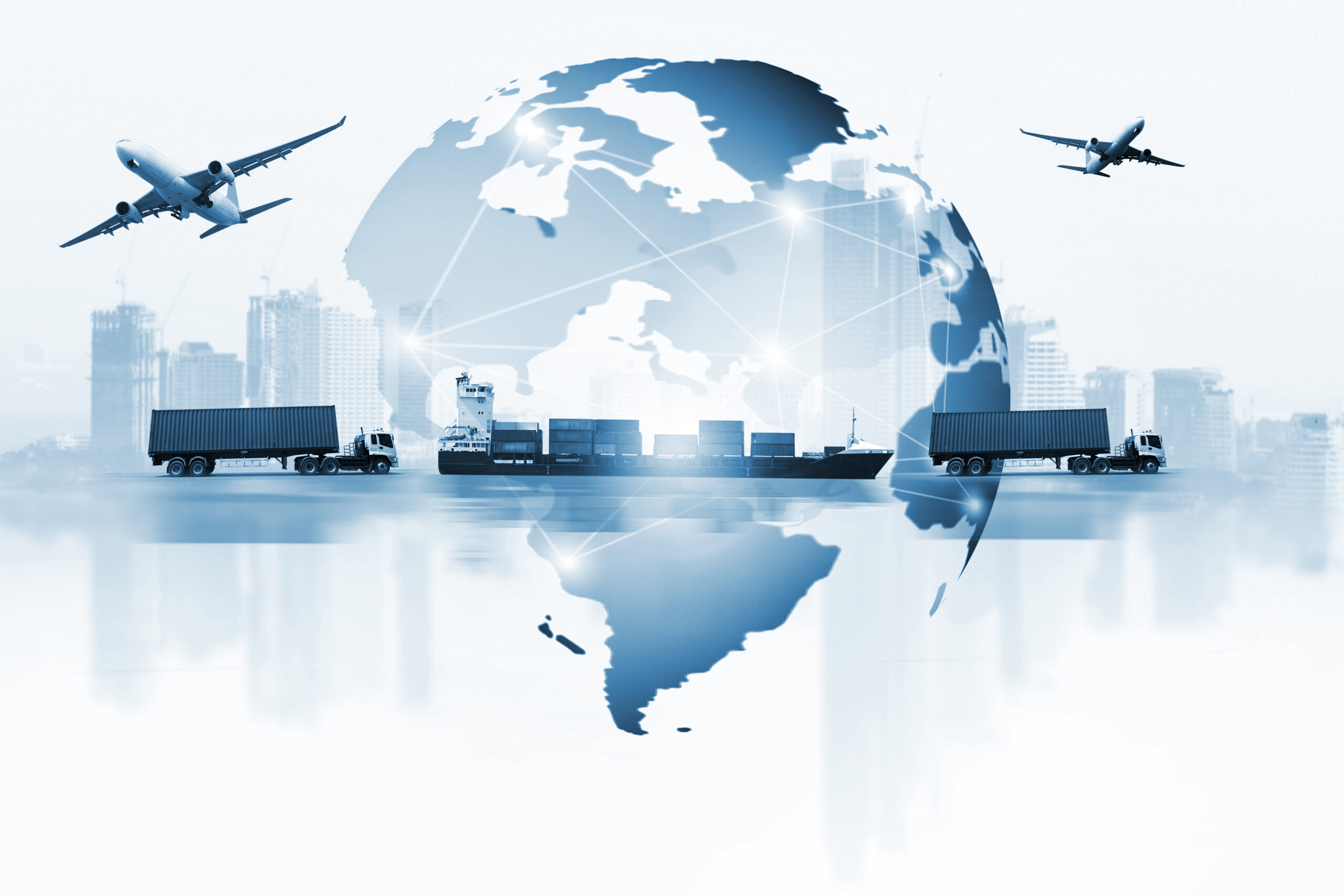Newsletter/Booklets 29th Sep 2022




In the first part of ELP’s three-part series on “Trade in Services & General Data Considerations”, we explore the intersection between the services sector and data transfers.
Since the liberalization of the Indian economy in 1991, the services sector has played a key role in integrating India with the global market. India has established itself at the forefront of the Information Technology (IT) and Information Technology enabled sectors (ITes) and has developed tremendous competence in the telecommunications, other business and transport sectors.[1] Notably, in 2021, the service sector contributed to more than 50% of the Indian Gross Domestic Product (GDP),[2] and in particular, international trade in services forms 11.9% of the Indian GDP.[3]
India has maintained a positive trade balance for services since 2008, despite the setback faced by the industry post the COVID-19 pandemic. In FY 2021-22, India’s export of services was valued at USD 254.4 billion, exceeding its export of services recorded in FY 2019-20 (pre-COVID 19).[4] Table 1 summarizes India’s position in various sectors and highlights its key strengths:
| Sector (FY 2019-20) | Exports by India (USD thousand) | % of total Service Exports by India | Imports by India (USD thousand) | % of total Service Imports by India |
| Business Services | 78,042,491 | 38.3% | 48,595,193 | 31.5% |
| Transport | 20,796,730 | 10.2% | 53,808,534 | 34.9% |
| IT services | 68,248,229 | 33.5% | 11,007,250 | 7.15% |
| Travel | 13,036,076 | 6.41% | 12,570,905 | 8.16% |
| Others | 2,31,29,285 | 11.38% | 2,79,42,780 | 18.15% |
| Total | 203,252,810 | 100% | 153,924,663 | 100% |
Table 1
Source: ITC Trade Map.[5]
India’s core competence lies in the export of services under Mode 1 (cross-border supply) and Mode 4 (Presence of Natural Persons). However, the presence of significant barriers to trade in services has prevented India from fully capitalizing on its potential. Work permits, visas and licensing requirements imposed by key trading partners like the United States of America (USA) and the European Union (EU) limit India’s access to strong markets. With the growing focus on digital data in trade in services, it becomes imperative that India’s laws and policies regarding data not only protect Indian interests but drive the facilitation of trade in services.
Notably, India recently withdrew its long-standing Personal Data Protection Bill, 2021 (“PDP Bill”) in August 2022. The PDP Bill was first introduced in Parliament on December 11, 2019, and has been hotly debated since.[6] The Government of India intends to introduce a new bill containing a ‘comprehensive framework’ addressing concerns arising from a digital economy. The introduction of a new legislation is likely to have a significant impact on how India trades in services. Table 2 encapsulates sector-wise data and privacy concerns.
| Sector | Data and privacy concerns |
| IT and ITes Services | The trade in IT and ITes services involves enormous cross-border transfer of data. This raises concerns regarding data ownership, localization, secondary use, and cybersecurity for data in transit. [7] |
| Travel and Transportation Services | Transportation services give rise to privacy concerns in collecting customer leads, maintaining and storing international employee databases, and transferring personal data to third parties for reporting or operations purposes.[8] |
| Insurance, Pension and Financial Services | The financial sector is the primary target for data breaches. Enormous amounts of sensitive financial data are used and transferred between borders. Such service providers are required to incorporate dual cybersecurity measures for employees and consumers and implement robust privacy mechanisms for data ownership and deanonymization.[9] |
| Construction Services | Cross-border construction services are facing emerging privacy concerns due to the growth of cloud computing and Building Information Modelling systems. In addition, the industry is raising challenging questions regarding storing proprietary building and financial information[10] and levels of access between different members of building teams.[11] |
| Personal, Cultural and Recreational Services | Personal, cultural and recreational services are increasingly being conducted through virtual reality and augmented reality systems, requiring event hosts and streaming platforms to consider policies for the level of anonymity they seek to allow, biometric privacy for artists’ holographic models and issues of recordings and intellectual property.[12]
|
Table 2
Larger privacy concerns, agnostic of the sector, are present in all forms of cross-border data transfer. For example, identity management is a key requirement for industries such as financial services, transportation and logistics, IT services, etc., requiring them to implement adequate protections for stored identities and deanonymization whenever necessary.[13] Data ownership is another sector-neutral concern, as data transfer between multiple parties must be protected in terms of how third parties use and store data owned by a service provider.[14] Finally, services with State interaction face additional considerations for data localization, cybersecurity and data sovereignty.[15]
Historically, India’s position on data privacy has been divergent from the stance maintained by its key trading partners. India has expressed concerns about the challenges developing countries face in regulating digital trade and data. Significantly, the now revoked PDP Bill contained various provisions of concern for India’s trading partners. These issues are compounded by the fact that India’s recent trade agreements (such as with the UAE and Australia) do not include substantial data provisions.[16] This, in turn, means that in the absence of specific, trade-favourable provisions, investors and customers from these regions would be similarly precluded from trading with India.
Thus, India requires a holistic approach to promoting its services. While India continues to engage in progressive trade agreements, they must be bolstered by equally trade-favourable privacy controls. This does not mean that privacy and trade are inherently at odds; as future articles will illustrate, privacy controls can be both comprehensive and trade favourable. India must develop a baseline with its trading partners to ensure that domestic laws do not hamper its FTAs. Through subsequent articles, privacy considerations and possible legal solutions will be explored for each sector of India’s service exports. India must consider these issues to inspire confidence within trade partners and cement itself as a service exports hub. In the next series, we would be exploring the introduction of data regulations including principles as well as procedure which would be advisable in order to make it accessible for two countries to facilitate inbound and outbound of data.
We trust you will find this an interesting read. For any queries or comments on this update, please feel free to contact us at insights@elp-in.com or write to our authors:
Sanjay Notani, Partner – SanjayNotani@elp-in.com
Divyashree Suri, Associate – DivyashreeSuri@elp-in.com
[1] Press Release, PIB (May 04, 2022), available at https://pib.gov.in/PressReleasePage.aspx?PRID=1822664.
[2] Services Sector in India, IBEF, (Apr, 2022), available at https://www.ibef.org/download/1650624848_Services-March_2022.pdf.
[3]Net Trade in Goods and Services (India), World Bank, available at https://data.worldbank.org/indicator/BG.GSR.NFSV.GD.ZS?locations=IN.
[4] Supra note 1.
[5]List of Services Exported and Imported by India, Trademap, available at https://www.trademap.org/Service_SelCountry_TS.aspx?nvpm=1%7c699%7c%7c%7c%7c%7c%7cS00%7c1%7c3%7c1%7c2%7c2%7c1%7c5%7c1%7c1%7c1;
[6] The Personal Data Protection Bill, 2019, PRS India, available at https://prsindia.org/billtrack/the-personal-data-protection-bill-2019.
[7] How Barriers to Cross-Border Data Flows Are Spreading Globally, What They Cost, and How to Address Them, ITIF (July 19, 2021), available at https://itif.org/publications/2021/07/19/how-barriers-cross-border-data-flows-are-spreading-globally-what-they-cost/
[8] Data Protection And Its Legal Implications On Logistics, DHL (June 4, 2019), available at
https://lot.dhl.com/data-protection-and-its-legal-implications-on-logistics/ .
[9] Understanding Data Privacy In The Financial Services World, TCS, availible at https://www.tcs.com/content/dam/tcs-bancs/protected-pdf/Understanding-Data-Privacy-in-the-Financial-Services-World.pdf
[10] Sururah A. Bello et. al., Cloud computing in construction industry: Use cases, benefits and challenges, 122 Automation in Construction 1, 12 (2021).
[11] Shaping the Future of Construction A Breakthrough in Mindset and Technology, WEF-BCG, (May, 2016) available at https://www3.weforum.org/docs/WEF_Shaping_the_Future_of_Construction_full_report__.pdf.
[12] Jennifer L. Breese et. al., Live Music Performances And The Internet Of Things, 21(3) Issues in Information Systems 179, 183-184 (2020).
[13] Shaping Policies For The Future Of The Internet Economy, OECD (June 2008), p. 26, available at https://www.oecd.org/sti/40821707.pdf.
[14] Avetta Marketing, Finding and Resolving Security Issues in Logistics, Avetta (February 19, 2021), available at https://www.avetta.com/blog/finding-and-resolving-security-issues-logistics.
[15] Supra note 13 at p. 23-25.
[16] India – Australia Economic Cooperation and Trade ECTA: Key Takeaways, ELP (April, 2022), available at https://elplaw.in/wp-content/uploads/2023/11/ELP-Update-India-–-Australia-Agreements-Key-takeways.pdf; India – UAE Comprehensive Economic Partnership Agreements: Key takeaways, ELP (March 30, 2022), available at https://elplaw.in/leadership/india-uae-comprehensive-economic-partnership-agreements-key-takeaways/.
As per the rules of the Bar Council of India, lawyers and law firms are not permitted to solicit work or advertise. By clicking on the "I Agree" button, you acknowledge and confirm that you are seeking information relating to Economic Laws Practice (ELP) of your own accord and there has been no advertisement, personal communication, solicitation, invitation or any other inducement of any sort whatsoever by or on behalf of ELP or any of its members to solicit any work through this website.